Final year project
Incentivising safer working practices in construction [Read more]
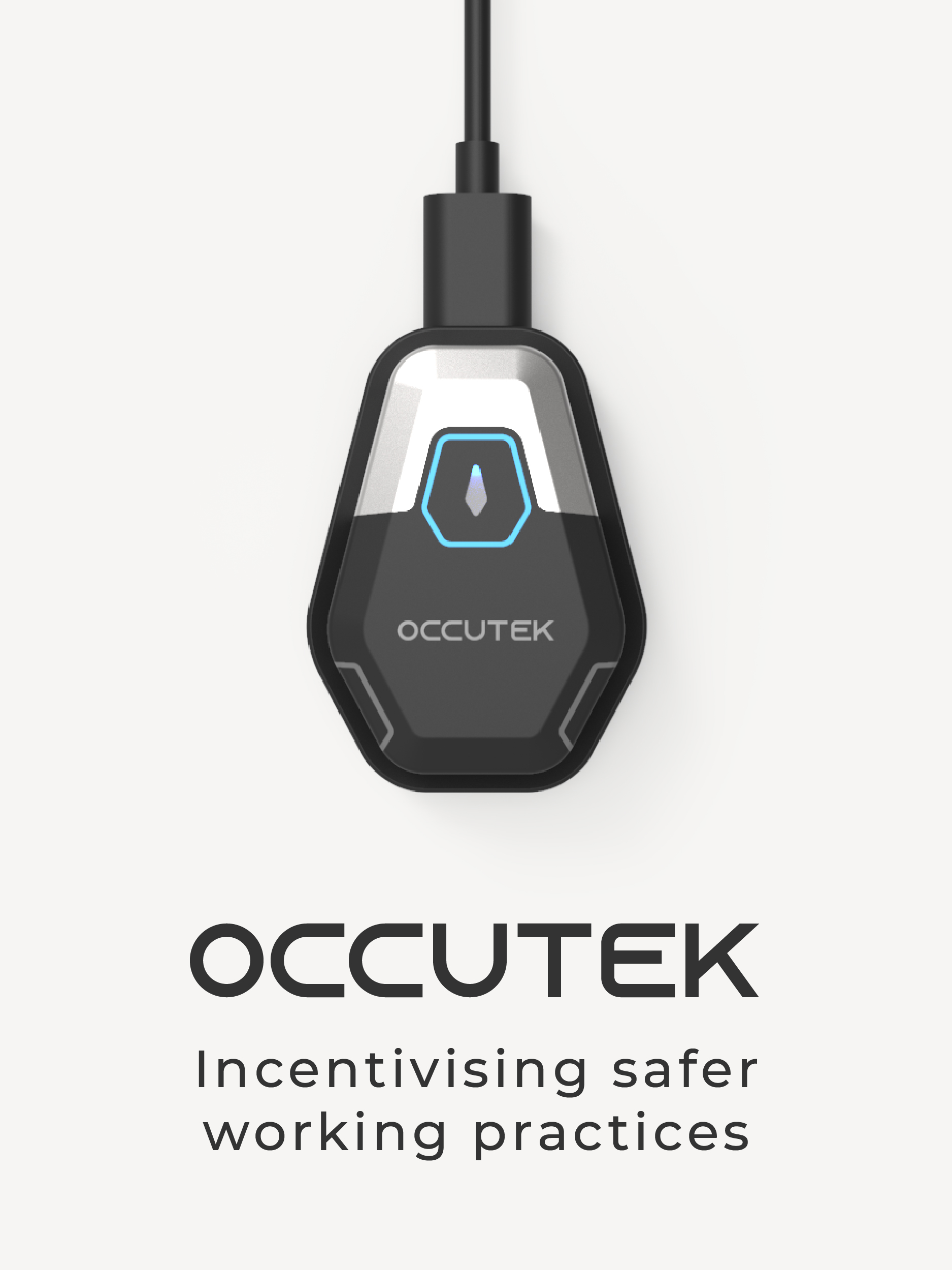
Occutek - Injury prevention wearable
The Occutek device is a wearable product that aims to reduce lower back musculoskeletal disorders in construction. It is implemented alongside manual handling training, a rewards scheme and engagement with line managers. As well as improving conditions for workers, investing in Occutek allows employers to increase long-term productivity by reducing sickness presence.
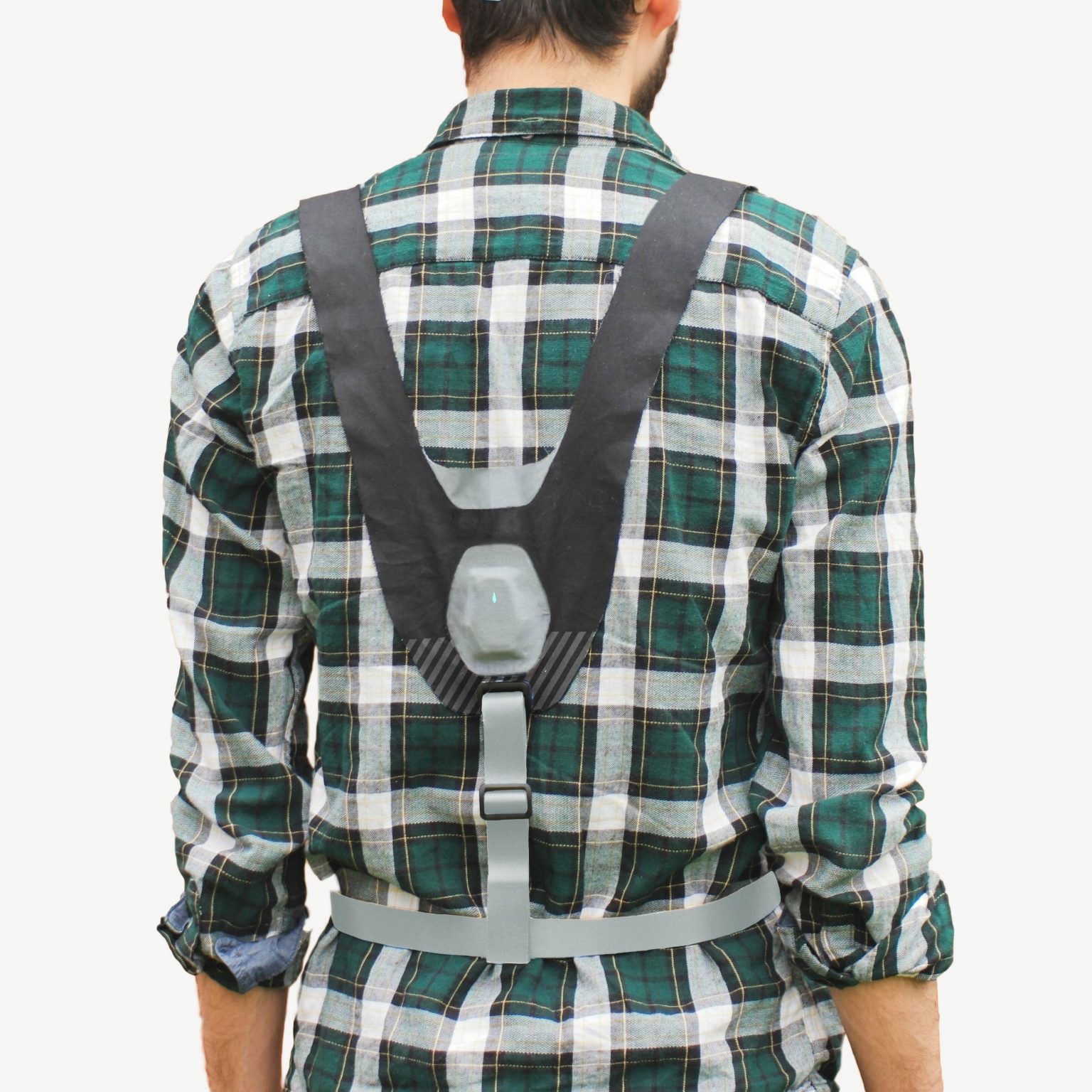

Occutek - sensor vest
The Occutek device is worn on the back and is compatible with existing PPE. The device analyses the wearer's movements and generates an hourly risk score. When the score exceeds a certain risk threshold, the device provides real-time feedback; advising the wearer to adjust their technique. The score can also be used by line managers to evaluate the effectiveness of different safety interventions.
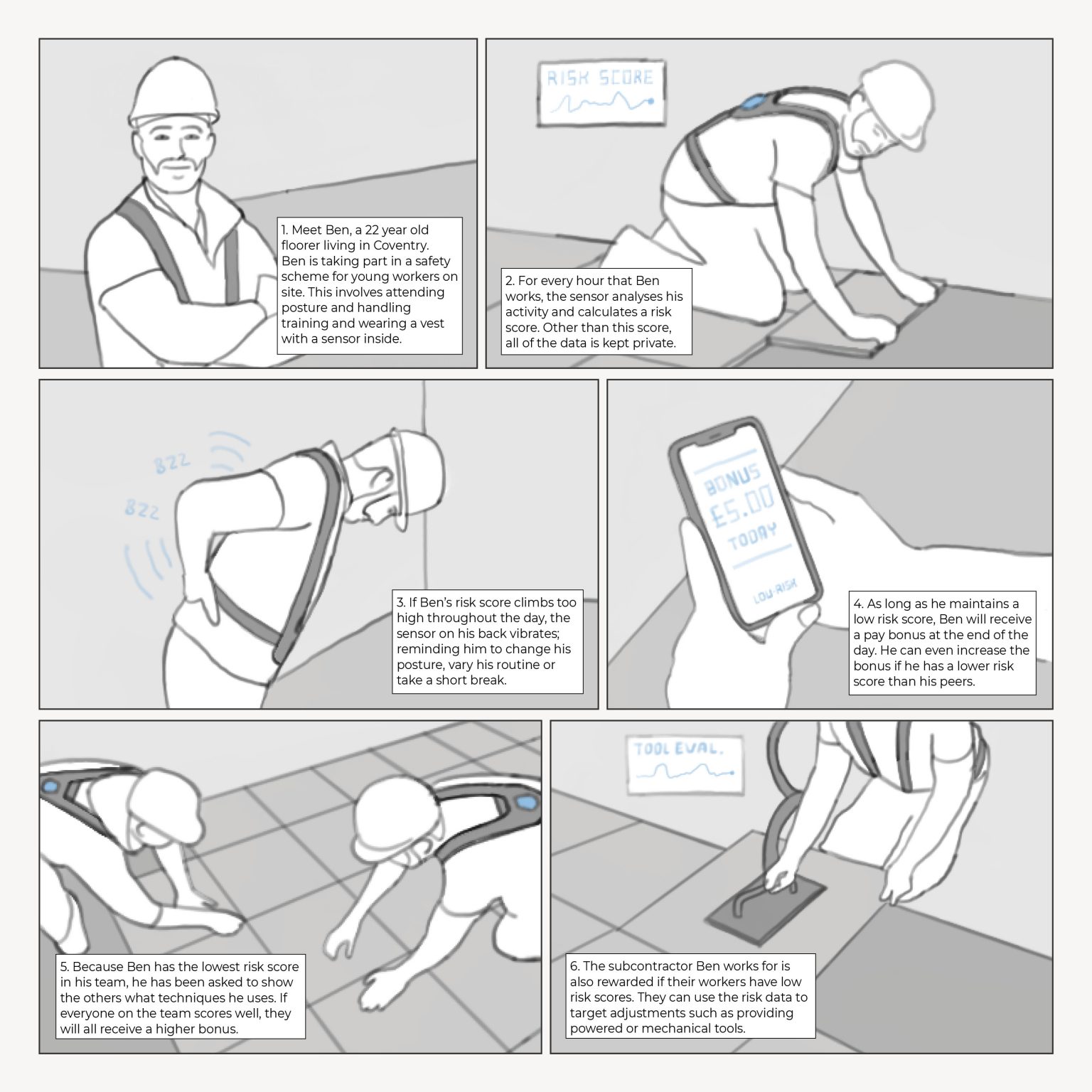

Occutek - Scenario of use
The risk score can be used to incentivise safer working practices from both the top-down and the bottom up. Workers can receive a small cash bonus if they keep their score below a certain threshold. Contractors can also be rewarded based on the scores of their workers. This helps to soften the link between payment and productivity that traditionally causes employees to work beyond their capacity.
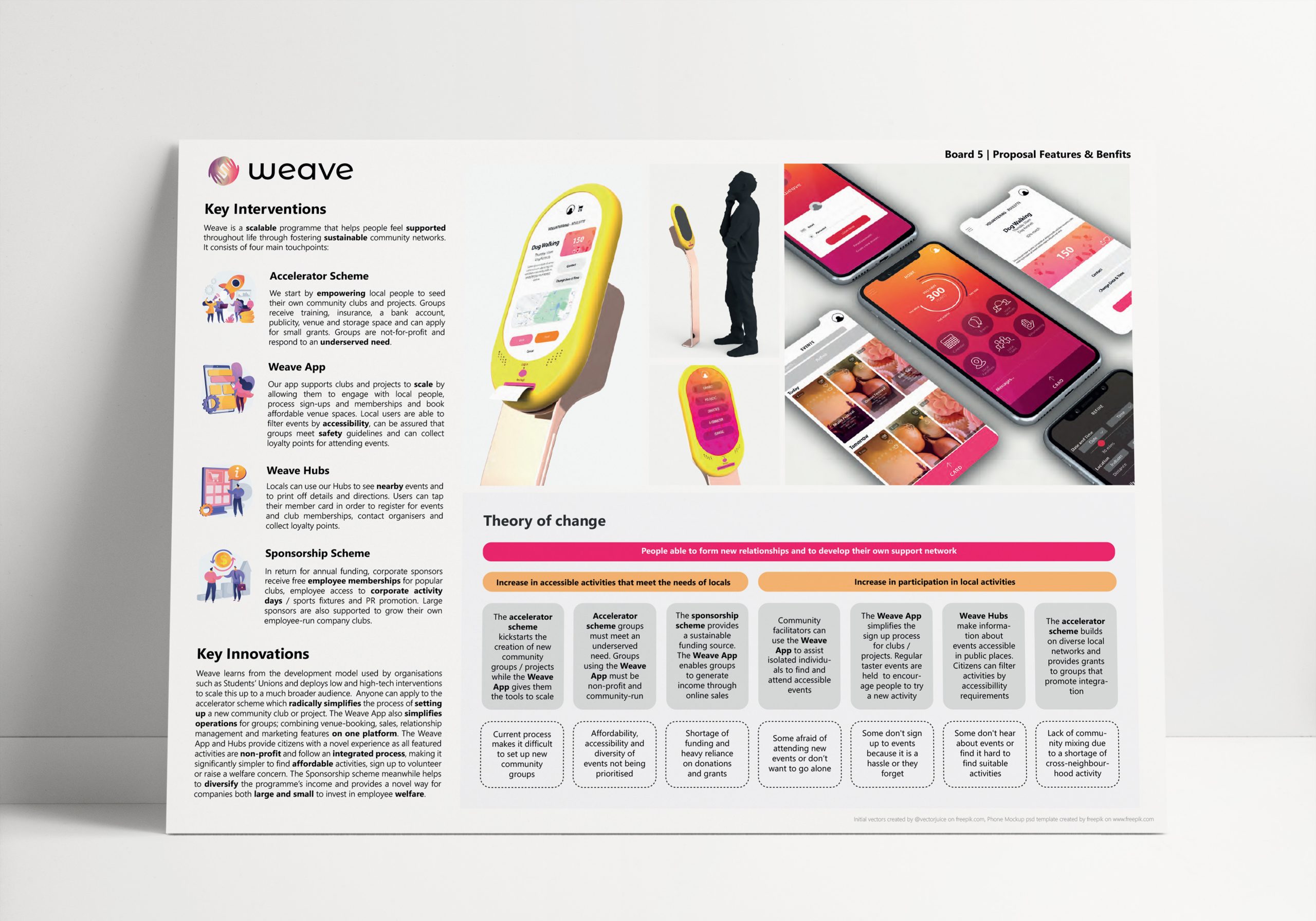

Weave - RSA proposal
Weave is a scalable programme that helps people to form new relationships and to develop their own support network. It consists of four main touchpoints: a community club accelerator scheme, a digital platform, a corporate sponsorship scheme and interactive hubs. Developed in a team with Princess Woy and Quiana Higgins, our proposal was the only submission from our programme to be shortlisted for the 2021 RSA Student Design Awards.
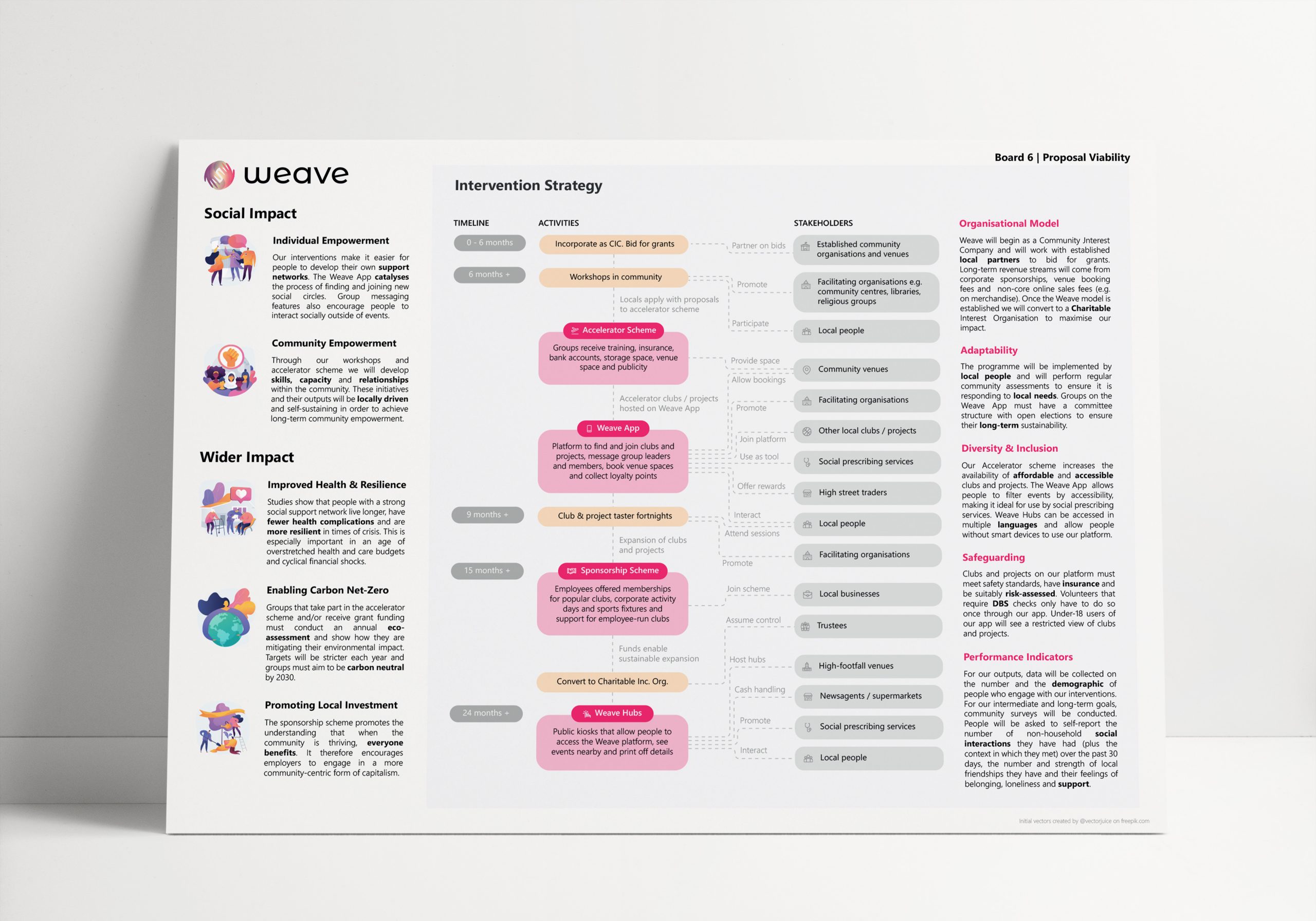

Weave - Intervention strategy
I was responsible for prototyping the system model and used a variety of tools such as a stakeholder assessment, a roadmap, a business model canvas, a value-exchange diagram and a theory of change. These were tested through roleplaying scenarios and conducting interviews with stakeholders.
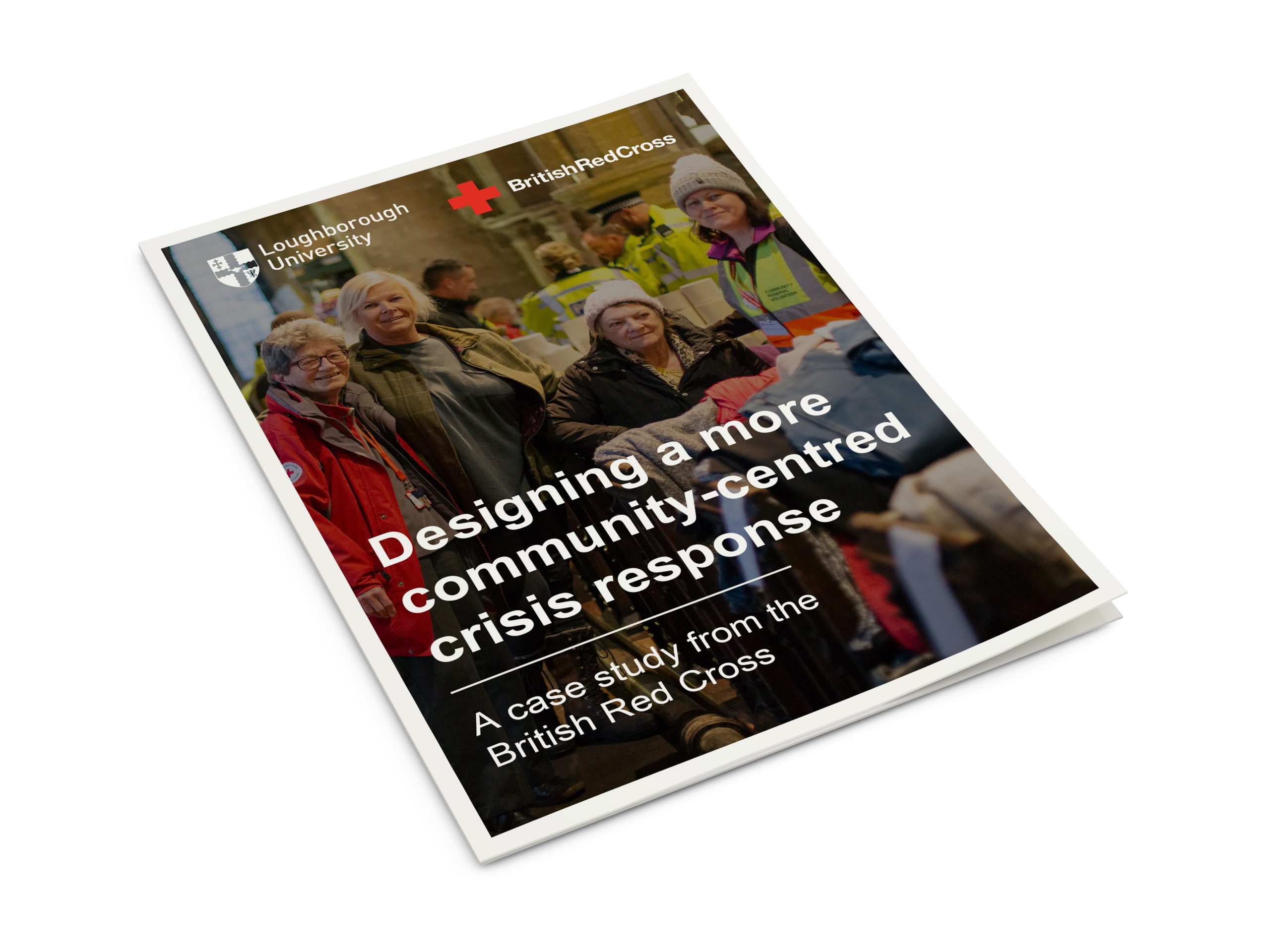

Dissertation - Designing a more community-centred crisis response
For my placement year dissertation, I wrote a case study on my experience designing a community innovation pilot at the British Red Cross. This included a literature review on the methods we employed such as community organising, systems thinking and asset-based community development.
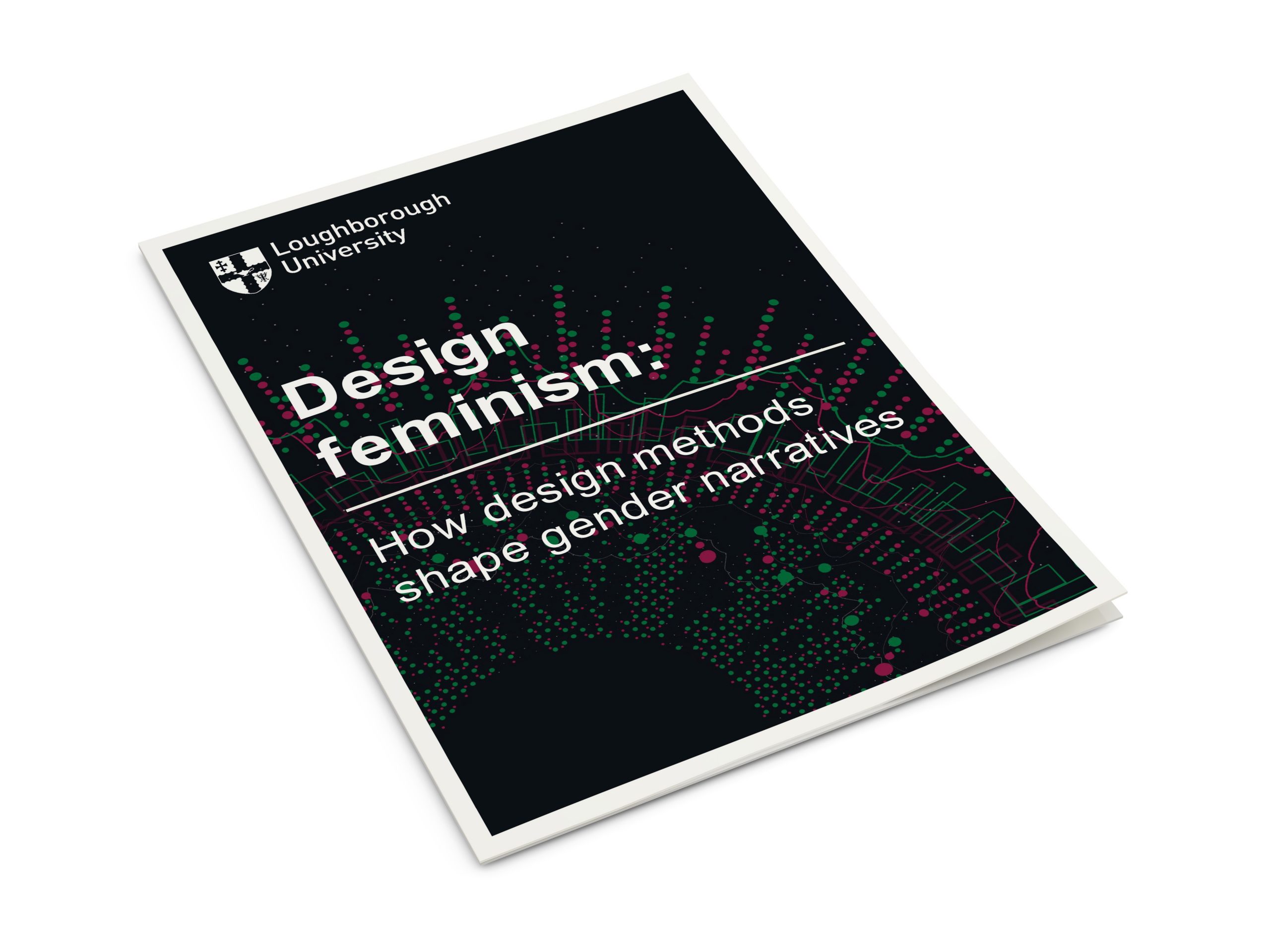

Dissertation - Design feminism: How design methods shape gender narratives
For my final year dissertation, I conducted an investigation into feminist design approaches and the role these can play in influencing western gender narratives. This involved interviewing a range of individuals from industry and academia.
Peter Waters
I design and research transitions in human systems with a focus on promoting social and environmental prosperity.
I enjoy unpicking messy and complex problems and am passionate about applying design principles to develop interventions that have a tangible social benefit. My design approach is influenced by concepts such as systems thinking, co-production, feminism, environmentalism and asset-based community development.
After completing a Master of Science in Global Prosperity at UCL, I plan to pursue a career in policy design or project/programme design, whether in the public sector, third sector or a social impact consultancy. Some of my key skills include co-production, lean prototyping, user research, data analysis and project/programme design.
Final year project
Incentivising safer working practices in construction
Awards
Working in a team with Princess Woy and Quiana Higgins, our design was the only submission from our programme to be shortlisted for the 2021 RSA Student Design Awards. Our proposal; Weave, is a product-service system that enables citizens to feel supported at home through the creation of strong community connections.
Working with Rhys Comissiong, Robin Harmer, Nicholas Johnson, Rachel Chung and William Jephcote, our team won the Champions Award for the 2018 Ford Fund Smart Mobility Challenge, winning a prize of £10,000 to go towards development. Our proposal; Pronto, was a smart service that aimed to increase the mobility of the elderly population with the support of local volunteers.
My design won a Highly Commended Award in the 2017 Student Starpack Awards. My proposal was a bakery packaging solution that aimed to reduce food waste.
Work Experience
From October 2019 - July 2020, I worked as a Project/Programme Designer for a Nesta-funded pilot at the British Red Cross. I worked with community groups, local authorities and emergency responders to co-produce, pilot and evaluate community interventions in East London with the aim of improving local resilience in emergencies.
From July - September 2018 I worked as a UX Design Intern for BP Digital at IBM. This involved supporting and conducting user interviews, planning and facilitating a client workshop, creating personas and user journey maps, creating digital wireframes and prototypes and conducting feedback sessions with clients.
From June - August 2019 I worked as an Industrial Design Intern at INDEED Innovation in Hamburg. This involved conducting desk research, writing specifications and proposals, creating user journey maps, building and testing physical and digital prototypes and producing client presentations.